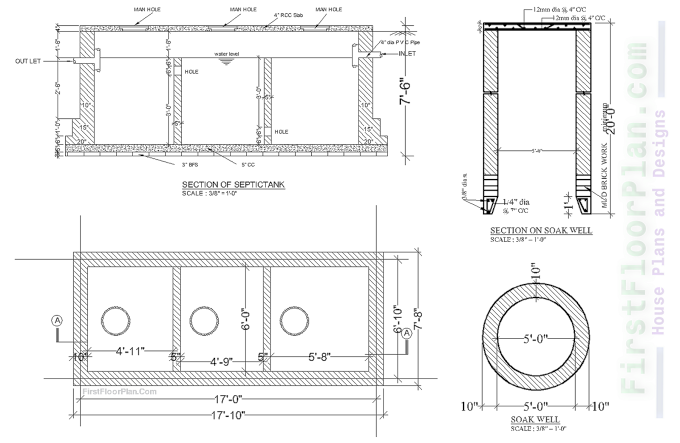Replacing your roof may seem like a daunting task, but with proper planning and guidance, it can be a smooth and manageable process. Whether your roof is old, Damaged, or in need of a makeover, investing in a roof replacement can enhance the aesthetics, functionality, and value of your home. From choosing the right materials to hiring a reputable contractor, here are 10 easy steps to help you navigate the roof replacement process effortlessly.
At Rooftastic, we specialize in providing high-quality Roof Replacement Peachtree City. With years of experience and expertise, we are committed to delivering exceptional results that exceed our customers' expectations.
1. Assess Your Roof
Start by assessing the condition of your roof to determine if it needs replacement.
Look for signs of damage such as missing shingles, leaks, water stains, or
sagging areas. Consider the age of your roof and any previous repairs or
maintenance work done. If your roof is showing signs of wear and tear or nearing
the end of its lifespan, it may be time for a replacement.
2. Choose the Right Materials
Selecting the right roofing materials is crucial for ensuring durability, longevity,
and aesthetic appeal. Consider factors such as climate, budget, and architectural
style when choosing between options such as asphalt shingles, metal roofing, tile, or cedar shakes. Consult with a roofing professional to explore the pros and cons of each material and determine the best fit for your home.
3. Hire a Qualified Contractor
Hiring a reputable and experienced roofing contractor is essential for the success
of your roof replacement project. Research local contractors, read reviews, and
ask for recommendations from friends, family, or neighbors. Verify credentials,
licenses, and insurance coverage before making a decision. Choose a contractor
with a proven track record of quality workmanship and customer satisfaction. Click here to learn more about our roof replacement services in Peachtree City.
4. Obtain Permits and Approvals
Before starting the roof replacement process, obtain any necessary permits and
approvals from your local building authority. Ensure compliance with building
codes, zoning regulations, and homeowner association guidelines to avoid
delays or penalties. Your roofing contractor can assist you in obtaining the
required permits and ensuring all work is done in accordance with local regulations.
5. Schedule the Work
Coordinate with your roofing contractor to schedule the roof replacement at a
convenient time. Consider factors such as weather conditions, availability of
materials, and the contractor's workload when setting a timeline for the project.
Communicate any scheduling preferences or constraints to ensure a smooth and
timely completion of the work.
6. Prepare Your Property
Prepare your property for the roof replacement process by clearing the area
around your home and removing any obstacles or hazards. Protect outdoor
furniture, plants, and landscaping from potential damage by covering them or
moving them to a safe location. Clear access to your roof and provide ample
space for the contractor's equipment and vehicles.
7. Remove Old Roofing Materials
Start the roof replacement process by removing the old roofing materials to
create a clean and stable surface for the new roof. Tear off old shingles,
underlayment, flashing, and any damaged or deteriorated components. Dispose
of the debris responsibly and ensure proper waste management throughout the
project.
8. Install New Roofing System
Once the old roofing materials are removed, it's time to install the new roofing
system. Begin by installing underlayment, followed by flashing, drip edges, and
vents as needed. Lay down the roofing material of your choice according to guidelines and industry best practices. Pay attention to detail and ensure proper installation to prevent leaks, water damage, or other issues.
9. Complete Finishing Touches
After installing the new roof, complete the finishing touches to ensure a polished
and professional appearance. Install ridge caps, trim, and other accessories to
enhance the functionality and aesthetics of your roof. Perform a thorough
inspection to check for any gaps, inconsistencies, or defects and address them promptly.
10. Conduct Final Inspection
Once the roof replacement is complete, conduct a final inspection to ensure
everything meets your expectations and specifications. Verify that all work is
done according to the contract and industry standards. Address any concerns or
issues with your roofing contractor before making the final payment. Enjoy your
newly replaced roof and the peace of mind that comes with it.
Frequently Asked Questions (FAQs)
How long does a roof replacement typically take?
The duration of a roof replacement project depends on various factors such as
the size and complexity of the roof, weather conditions, and the contractor's
schedule. On average, a roof replacement can take anywhere from a few days to
a few weeks to complete.
Will my homeowner's insurance cover the cost of a roof replacement?
Whether your homeowner's insurance covers the cost of a roof replacement
depends on the cause of the damage and the terms of your policy. Damage
caused by covered perils such as storms, fire, or vandalism may be eligible for
coverage. Contact your insurance provider to determine your coverage options
and requirements.
How do I know if my roof needs to be replaced or repaired?
Signs that your roof may need replacement include extensive damage, multiple
leaks, missing or damaged shingles, and an old or deteriorating roof. If your roof nearing the end of its lifespan or has undergone multiple repairs, it may be
more cost-effective to replace it rather than continue patching it up.
What should I look for when hiring a roofing contractor?
When hiring a roofing contractor, look for credentials such as licenses, insurance
coverage, and certifications from reputable manufacturers. Read reviews, check
references, and ask for detailed estimates and warranties. Choose a contractor
with experience, expertise, and a proven track record of quality workmanship and
customer satisfaction.
Bottom Lines
In conclusion, replacing your roof is a significant investment that requires careful
planning, preparation, and execution. By following these easy steps and working
with a trusted roofing contractor like Rooftastic, you can ensure a seamless and
successful roof replacement process that enhances the beauty, functionality, and
value of your home.












%20House%20plan%20with%207%20storey%20Apartmen%20building%20Structural%20desing%20%20DWG%20&%20PDF.jpg)